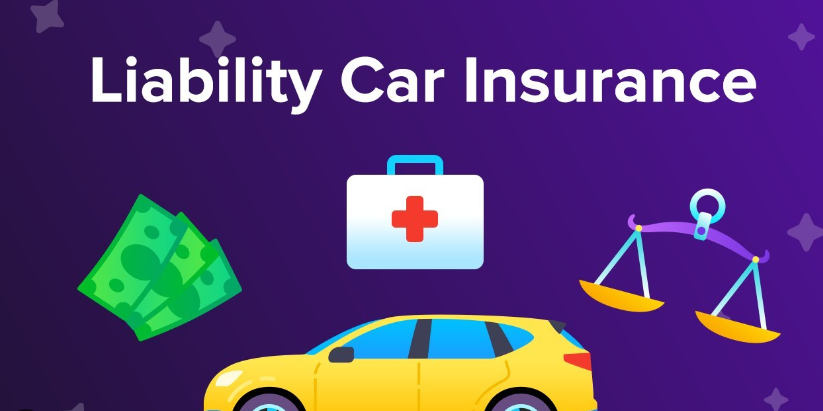If you’re a car owner, then you’ve probably heard about liability insurance, but you may not fully understand what it covers and why it’s essential to have. Liability insurance is a type of car insurance that covers damages or injuries that you cause to others in an accident. In this article, we’ll explore everything you need to know about liability insurance, including the different types, coverage limits, and how to determine the appropriate coverage for you.
Table of Contents
- What is Liability Insurance?
- Types of Liability Insurance
- Bodily Injury Liability
- Property Damage Liability
- Combined Single Limit Liability
- Coverage Limits
- Determining Coverage Needs
- Factors that Affect Liability Insurance Rates
- How Liability Insurance Works
- When to File a Liability Claim
- What Liability Insurance Does Not Cover
- The Importance of Liability Insurance
- How to Save Money on Liability Insurance
- Frequently Asked Questions (FAQs)
- Conclusion
What is Liability Insurance?
Liability insurance is a type of car insurance that provides coverage for damages or injuries that you cause to others while driving. This type of insurance is typically mandatory in most states, and it’s important to have because it helps protect you from financial loss in the event of an accident.
Types of Liability Insurance
There are three types of liability insurance: bodily injury liability, property damage liability, and combined single limit liability.
Bodily Injury Liability
Bodily injury liability covers medical expenses, lost wages, and other damages if you cause an accident that injures another person. This type of liability insurance is designed to pay for the victim’s expenses, including medical bills, rehabilitation costs, and lost wages.
Property Damage Liability
Property damage liability covers the cost of repairing or replacing another person’s property if you damage it while driving. This includes not only another person’s car but also their home, fence, mailbox, or any other property that you damage in an accident.
Combined Single Limit Liability
Combined single limit liability is a type of liability insurance that provides a single coverage limit for both bodily injury and property damage. This type of coverage is typically offered to business owners or individuals with high net worth who may need more coverage than the standard liability policy.
Coverage Limits
Liability insurance has coverage limits, which represent the maximum amount that the insurance company will pay for damages or injuries caused by you in an accident. The coverage limits are typically written in a format such as 50/100/25, which means:
- $50,000 per person for bodily injury
- $100,000 per accident for bodily injury
- $25,000 per accident for property damage
Determining Coverage Needs
The appropriate coverage for you depends on several factors, including your assets, income, and risk tolerance. If you have significant assets, you may want to consider purchasing additional liability insurance to protect yourself from potential lawsuits. On the other hand, if you have minimal assets and income, you may be able to get by with the minimum required liability insurance.
Factors that Affect Liability Insurance Rates
Several factors can impact the cost of liability insurance, including your driving record, age, gender, location, and the type of car you drive. Generally, if you have a clean driving record, you’ll pay less for liability insurance than someone with a history of accidents or traffic violations.
How Liability Insurance Works
If you cause an accident that results in damages or injuries to another person, you’ll need to file a liability claim with your insurance company. The insurance company will investigate the claim and determine whether you’re at fault. If you’re found to be responsible for the accident, your liability insurance will cover the victim’s expenses, up to your coverage limits.
When to File a Liability Claim
You should file a liability claim as soon as possible after an accident, even if you’re not sure if you’re at fault. It’s important to report the accident to your insurance company promptly, so they can begin the claims process and investigate the accident. Failure to report an accident can result in your insurance company denying your claim, leaving you responsible for paying for the damages out of pocket.
What Liability Insurance Does Not Cover
Liability insurance does not cover damages or injuries to you or your car. If you’re in an accident that’s not your fault, the other driver’s liability insurance should cover your damages and injuries. However, if the other driver doesn’t have insurance or doesn’t have enough insurance to cover your damages, you may need to file a claim with your own insurance company under your uninsured/underinsured motorist coverage.
The Importance of Liability Insurance
Liability insurance is important because it helps protect you from financial loss in the event of an accident. Without liability insurance, you could be held responsible for paying for the victim’s medical bills, lost wages, and property damage out of pocket, which can be very expensive. Liability insurance provides peace of mind, knowing that you’re protected in the event of an accident.
How to Save Money on Liability Insurance
There are several ways to save money on liability insurance, including:
- Bundling your auto and home insurance with the same company
- Increasing your deductible
- Maintaining a clean driving record
- Taking a defensive driving course
- Installing safety features on your car
Frequently Asked Questions (FAQs)
- Is liability insurance mandatory? Yes, liability insurance is mandatory in most states.
- How much liability insurance should I have? The appropriate coverage for you depends on several factors, including your assets, income, and risk tolerance.
- Does liability insurance cover me if I’m at fault in an accident? Yes, liability insurance covers damages or injuries that you cause to others in an accident.
- Can I be sued if I have liability insurance? Yes, you can still be sued if you have liability insurance, but your insurance company will provide legal defense and pay for damages up to your coverage limits.
- Can I get liability insurance without a car? No, liability insurance is only available to car owners.
Conclusion
Liability insurance is an essential type of car insurance that provides coverage for damages or injuries that you cause to others while driving. It’s important to understand the different types of liability insurance, coverage limits, and how to determine the appropriate coverage for you. By having liability insurance, you can have peace of mind knowing that you’re protected in the event of an accident.








